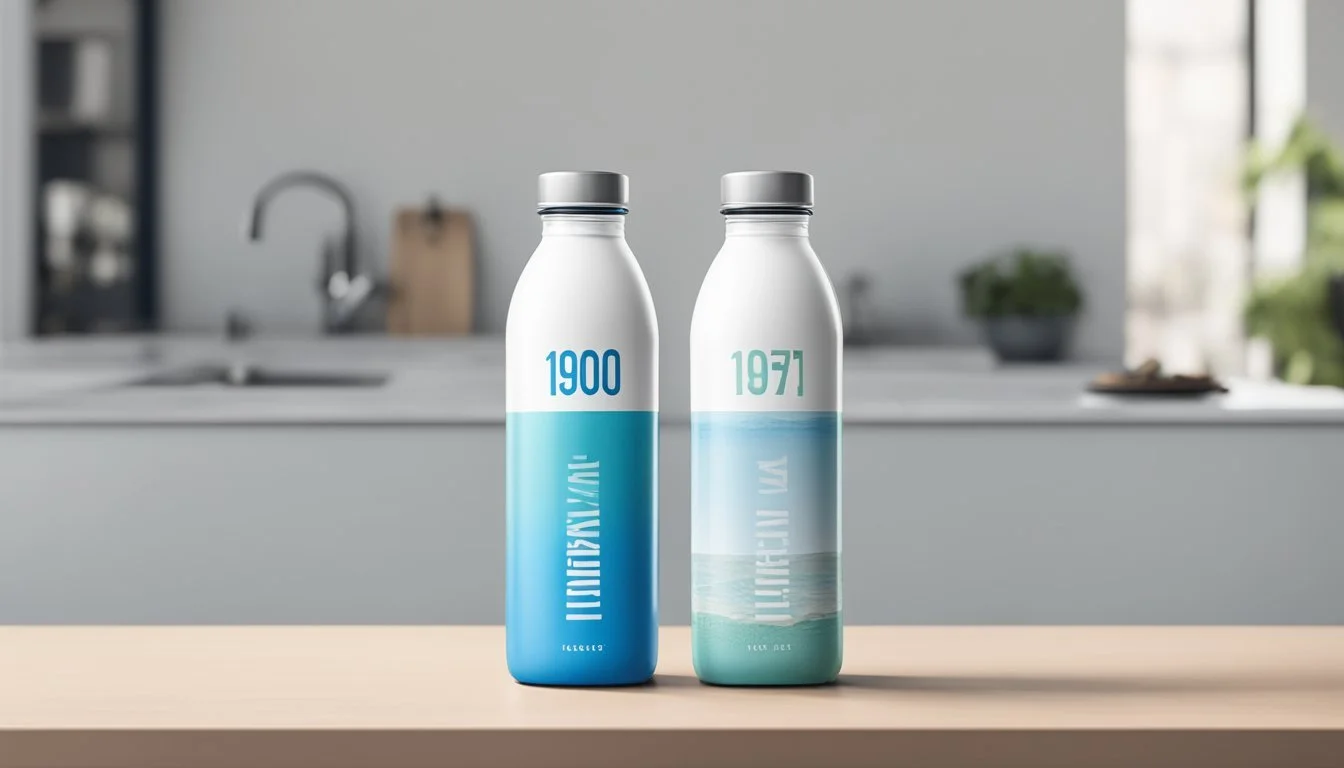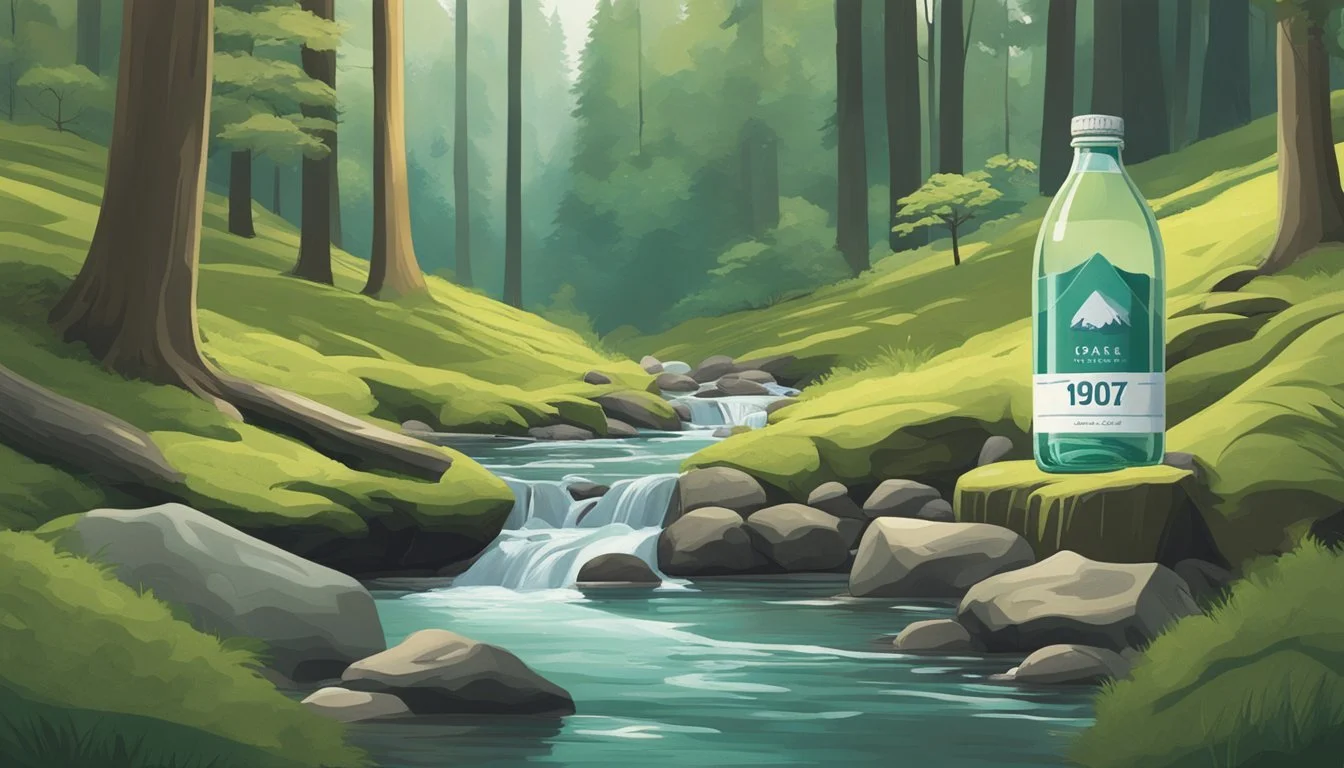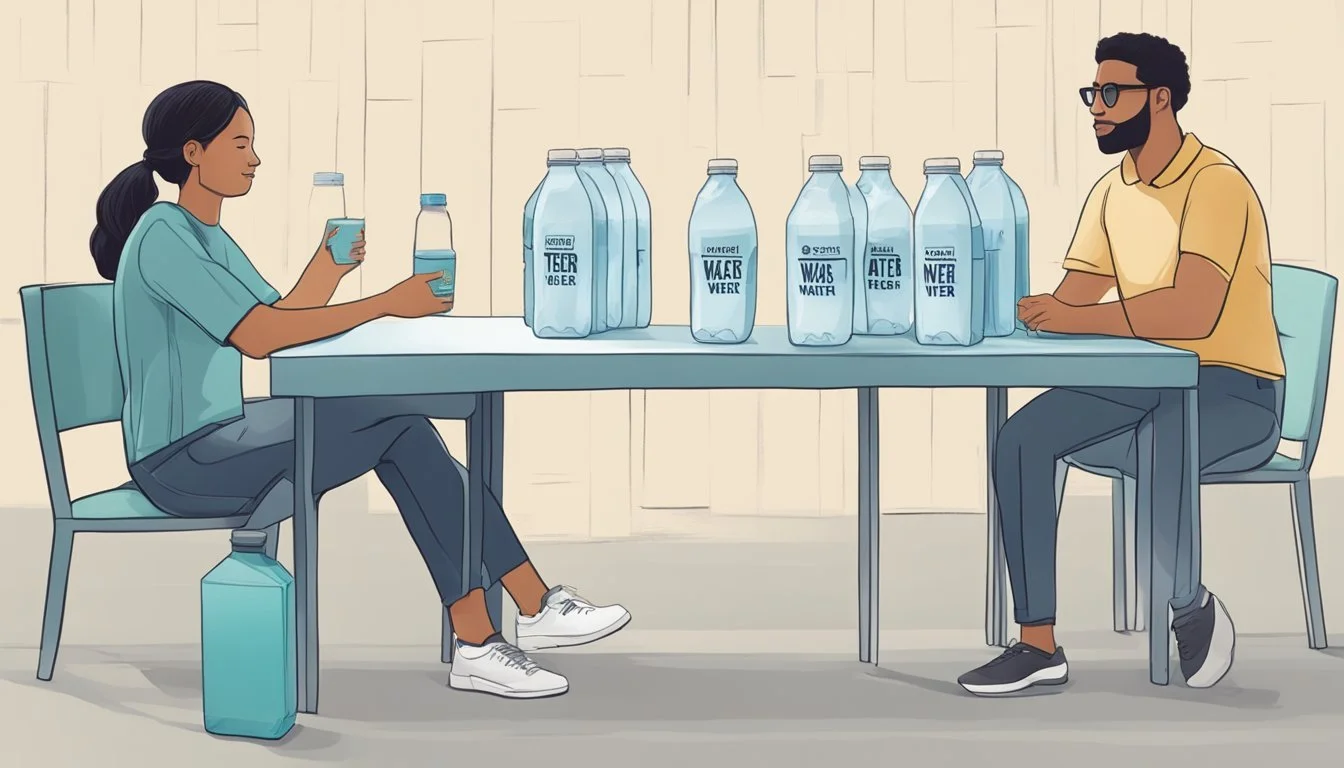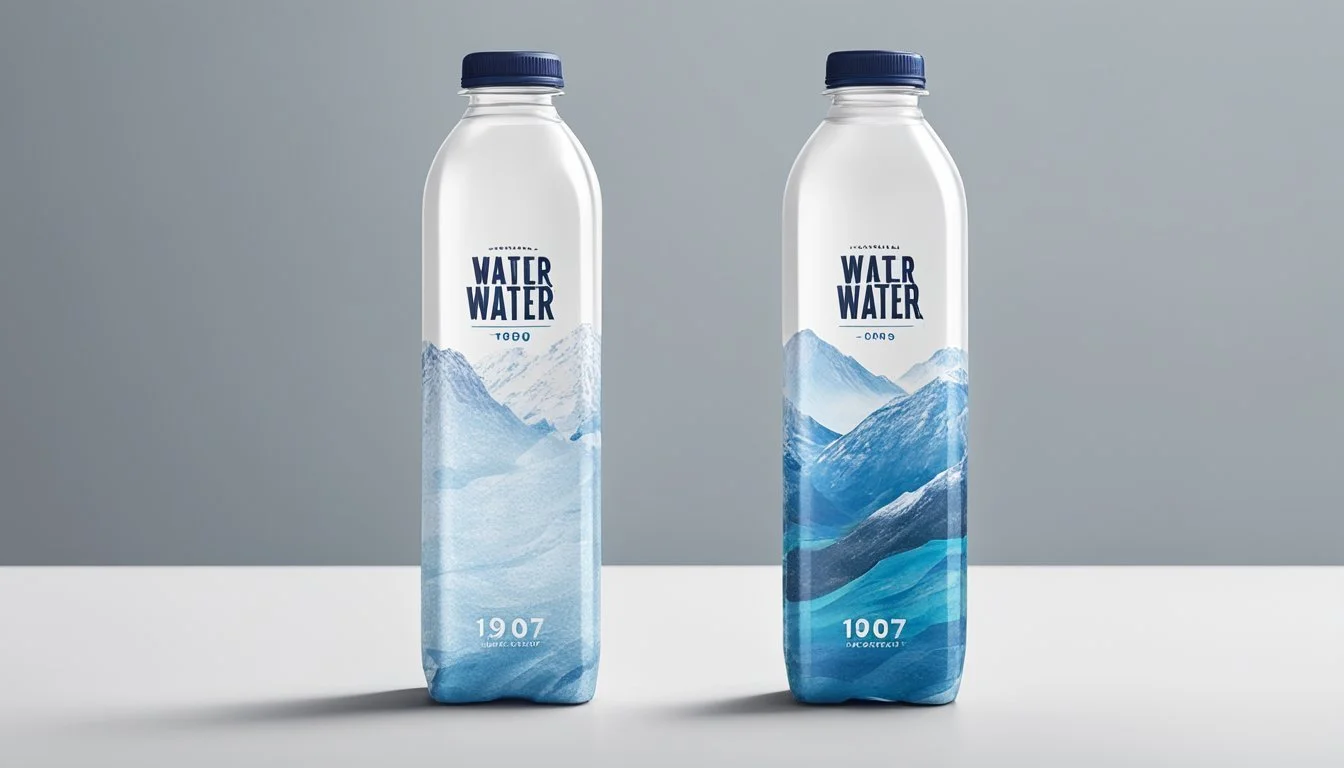Boxed Water vs. 1907water
Comparing Quality and Sustainability
Choosing the best bottled water often boils down to taste, sustainability, and quality. Boxed Water and 1907water are two standout brands that have carved a niche in the competitive market of bottled water. Boxed Water has made a name for itself with its innovative paper-based packaging and commitment to sustainability. The water itself is crisp and neutral, making it a refreshing choice for many.
1907water, sourced from the pristine springs of New Zealand, positions itself as a premium bottled water brand. It boasts a smooth and pure taste, attributed to its natural filtration process. When comparing these two, Boxed Water edges out in eco-friendliness due to its sustainable packaging, while 1907water takes the lead in terms of taste and purity.
This comparison highlights the key factors that might influence your choice—whether you prioritize sustainability with Boxed Water or the superior taste profile of 1907water. Both brands offer unique advantages, catering to different preferences in the bottled water market.
Understanding Bottled Water
Bottled water comes in various forms and has undergone significant transformation over the years. From traditional plastic bottles to more sustainable packaging, the industry has seen a shift toward eco-friendly options.
Types of Bottled Water
Bottled water is available in different forms, catering to varying tastes and health needs. Purified water is one common type, processed through various methods like distillation to remove impurities. Spring water, sourced from underground springs, is prized for its natural taste. Flavored water, offering options like grapefruit and lemon, provides a more palatable alternative for those looking to stay hydrated with a hint of flavor.
Canned water and boxed water are emerging as sustainable alternatives to traditional plastic bottles. These options aim to reduce environmental impacts, promoting recycling and reduced carbon footprint. Boxed water, for example, uses paper-based packaging with minimal plastic elements. This shift aligns with the industry's growing focus on sustainability and environmental responsibility.
The Bottled Water Industry Evolution
The bottled water industry has dramatically evolved over the past few decades. Initially dominated by traditional plastic bottles, the industry now sees a variety of packaging formats. Companies like Boxed Water have pioneered the use of sustainable materials, aiming to minimize the environmental effects linked to plastic waste.
Recycling initiatives have become more prominent, encouraging consumers to responsibly dispose of their water bottles. Enhancements in production and distribution technology have also reduced the carbon footprint associated with bottled water. Additionally, there's a heightened consumer awareness regarding the environmental impact of bottled water, driving demand for greener alternatives.
Brands are continually innovating to meet these demands, offering a range of water products designed to cater to diverse consumer preferences and environmental concerns.
Packaging Materials and Technology
Boxed Water and 1907water utilize different materials and technologies to package their products, with a focus on sustainability and environmental impact. This section examines the specifics of their packaging approaches, comparing the materials used and their environmental consequences.
Plastic vs. Paper: A Comparative Analysis
Boxed Water uses paper-based cartons composed of 74% paper, 1% aluminum, and 25% plastic film. The paper is sourced from FSC-certified, well-managed forests. The plastic film ensures waterproofing and seals the product, while the aluminum provides additional stability. Notably, their packaging is stated to be 92% plant-based.
1907water uses plastic bottles predominantly made from PET (Polyethylene Terephthalate). PET is derived from petroleum, making it less sustainable compared to plant-based materials. However, PET is lightweight and highly recyclable, which can mitigate some of the environmental impacts if proper recycling protocols are followed.
Comparing the two, Boxed Water’s multi-material carton aims for reduced fossil fuel reliance by using plant-based content. Its complex recycling process for composite materials can be a challenge. In contrast, 1907water’s PET bottles are easier to recycle but rely more on fossil fuels for production.
Environmental Footprints of Different Packages
Boxed Water’s carton packaging has a lower carbon footprint compared to traditional plastic bottles. The company claims its packaging emits fewer greenhouse gases and uses less bauxite and petroleum. The plant-based materials and FSC-certified paper contribute to reduced ozone depletion and overall environmental harm.
1907water's PET bottles, while recyclable, have a higher carbon footprint due to petroleum-based production. The extraction and processing of fossil fuels contribute significantly to greenhouse gas emissions. These bottles also present a significant environmental risk if not properly recycled, adding to plastic waste issues.
Both packaging types highlight the importance of lifecycle assessments. Boxed Water focuses on renewable resources and reduced carbon emissions, whereas 1907water emphasizes the recyclability of PET. The choice between these two options often depends on balancing immediate environmental impacts against long-term recycling efficiencies.
Health and Safety Concerns
Assessing the health and safety of bottled water involves examining potential chemical contamination, alongside adherence to standards and regulations implemented by relevant authorities. This ensures consumers access clean, safe drinking water.
Chemical Contamination in Bottled Water
Chemical contamination in bottled water is a significant concern. Elements like microplastics, PFAS (Per- and polyfluoroalkyl substances), and contaminants such as chlorine and fluoride can impact water quality. Boxed Water and 1907water both purportedly prioritize pure water, using rigorous filtration methods.
Boxed Water utilizes ultraviolet light, carbon filtration, and reverse osmosis to remove impurities. This process ensures a high level of water purity, limiting exposure to contaminants. 1907water, sourced from New Zealand, is known for its naturally high purity, requiring minimal treatment.
Addressing chemical safety, BPA-free packaging is crucial. Boxed Water's cartons use plant-based plastics and are more environmentally friendly, reducing plastic pollution. Overall, both brands aim to provide water free of harmful chemicals, backed by stringent purification processes.
Standards and Regulations for Water Quality
Water quality standards and regulations are vital for consumer safety. Bottled water must comply with guidelines set by organizations like the FDA and EPA, ensuring safety and reliability. These standards cover permissible contaminant levels, including microplastics and other pollutants.
Boxed Water adheres to strict guidelines, utilizing a multi-step purification process to meet regulatory standards. 1907water is also subject to rigorous testing. Its source in New Zealand's alpine regions is naturally low in contaminants, requiring limited intervention to meet global water quality norms.
Both brands emphasize transparency and adherence to checklists ensuring safety. Consumers can trust that both Boxed Water and 1907water have undergone comprehensive checks to deliver clean, safe drinking water aligned with health regulations.
Environmental Considerations
Environmental impact and sustainability are crucial factors when comparing boxed water and 1907water. Sustainable practices, recycling initiatives, and partnerships with environmental foundations all play significant roles.
The Role of Sustainable Forestry
Boxed Water emphasizes sustainable forestry practices by using packaging derived from FSC-certified (Forest Stewardship Council) forests. This certification ensures that the paper used is sourced responsibly, promoting reforestation and reducing deforestation rates. Sustainable forestry practices reduce the carbon footprint associated with water packaging.
1907water, on the other hand, uses plastic bottles, which are largely drawn from non-renewable resources and contribute significantly to pollution and global warming. Thus, the focus on renewable content by Boxed Water offers clear environmental benefits over traditional plastic bottles.
Impact of Recycling Initiatives
Recycling initiatives for Boxed Water cartons are gradually improving, although carton recycling is not yet universally available. Boxed Water claims that its cartons are 100% recyclable where facilities exist. This can potentially reduce the amount of waste directed to landfills, mitigating pollution.
1907water, bottled in plastic, also promotes recyclability. However, plastic bottles are often not recycled at high rates, contributing to ocean pollution and landfills. Increasing recycling rates for both packaging types can make a considerable difference, but the environmental benefits of carton recycling where it can be implemented are significant.
Collaborations with Environmental Foundations
Boxed Water actively collaborates with various environmental foundations. One notable partnership is with the Ocean Blue Project, focusing on reducing plastic waste in oceans and supporting reforestation foundations. These collaborations aim to foster a more sustainable environment through practical efforts and awareness campaigns.
1907water might engage in similar efforts, yet specific partnerships or initiatives are less prevalent in their marketing. Investing in broader environmental foundations and sustainability projects could benefit the brand and the planet.
The comparison between Boxed Water and 1907water shows that Boxed Water makes more strides towards environmental sustainability through responsible sourcing, recycling efforts, and strong partnerships with environmental organizations. These steps provide concrete advantages in reducing carbon emissions, pollution, and plastic waste.
Social and Global Impact
Boxed Water and 1907water are both committed to being environmentally sustainable, but their approaches to social and global issues differ significantly. Key points to consider include their efforts in drinking water accessibility and their commitments to global causes.
Drinking Water Accessibility
Boxed Water focuses on reducing plastic waste with their paper-based cartons. Their packaging is designed to be sustainable, relying on a mix of 74% paper, 1% aluminum, and 25% plastic. This minimizes environmental pollution and can contribute positively to communities by lowering waste.
1907water, originating from New Zealand, prioritizes preserving natural resources. They aim to ensure their bottling and distribution processes have minimal impact on local water tables. By focusing on such measures, they also help in maintaining groundwater levels for local populations.
Both brands emphasize the importance of ensuring clean water is accessible through their packaging choices and operational strategies. However, Boxed Water’s innovative approach to using recyclable materials sets it apart in sustainability.
Brand Commitments to Global Causes
Boxed Water is committed to several global causes, including reforestation. They have partnered with organizations to plant trees and help restore damaged ecosystems. Boxed Water’s involvement includes initiatives like pledging to plant trees with every social media post tagged with their brand. This creates a direct link between consumer engagement and environmental action.
Boxed Water also collaborates with charities focused on clean water projects globally. These initiatives aim to provide safe drinking water to underserved communities, enhancing their quality of life.
1907water, while less vocal about specific global initiatives, maintains robust environmental practices. Their water is sourced and bottled sustainably, and they actively work to minimize their carbon footprint. This approach supports broader ecological preservation efforts on a global scale.
Both brands demonstrate a commitment to reducing their environmental impact while supporting global sustainability efforts. Boxed Water's partnerships and social media initiatives reflect a proactive approach to environmental stewardship and community engagement.
Consumer Preferences and Behavior
When comparing Boxed Water to plastic bottled water brands like 1907water, consumers show varying preferences based on packaging, environmental impact, and personal habits.
Perception of Boxed vs. Plastic Bottled Water
Many eco-conscious consumers prefer Boxed Water for its sustainable packaging. Boxed Water cartons use a mix of paper, aluminum, and plastic, with some cartons being as much as 92% plant-based. This contrasts with traditional plastic bottles, which often face criticism for contributing to plastic pollution.
Taste also plays a role. Boxed Water is often praised for its neutral and crisp taste, which some consumers find more pleasant than plastic bottled options. Just Water, another eco-friendly brand, is also recognized for its refreshing taste and packaging.
Greenwashing is a significant concern. Some consumers worry that companies might overstate their environmental benefits. Hence, detailed information about materials and sustainability helps build trust.
Trends in Reusable Water Bottle Use
An increasing trend is the use of reusable water bottles, made from materials like stainless steel and durable plastics. Consumers who favor sustainability often opt for these over single-use options.
Brands like Boxed Water and 1907water benefit indirectly from this trend. People using reusable bottles may choose Boxed Water when needing a disposable option, as it aligns with their sustainable values.
Reusable bottles are praised for their durability and the ability to keep water cold or hot for extended periods. This convenience, combined with the environmental benefits, contributes to the rising popularity of reusable water bottles among eco-conscious individuals.
Conclusion
Boxed Water and 1907water both bring unique benefits to the table in terms of sustainability and consumer appeal, with distinct differences in packaging and environmental impact.
Final Assessment
Sustainability: Boxed Water uses cartons made from sustainable paper, aluminum, and plastic film. This design aims to minimize the environmental footprint compared to plastic bottles. On the other hand, 1907water provides its water in recyclable and BPA-free plastic, which also caters to environmental concerns, although not as innovative as paper-based packaging.
Environmental Impact: Boxed Water has demonstrated a lower impact on ozone depletion and global warming compared to both aluminum and plastic packaging. This makes it a strong contender for consumers who prioritize reducing their environmental footprint. 1907water, while also eco-conscious, does not match the innovative approach of Boxed Water's packaging.
Consumer Behavior: Today's consumers are increasingly aware of the environmental consequences of their purchasing decisions. Boxed Water's innovative and eco-friendly packaging appeals to these consumers, providing a visually distinct and environmentally sound alternative. 1907water appeals to those who still prefer the familiarity and convenience of reusable plastic bottles.
Innovation: Boxed Water stands out with its unique carton design and commitment to sustainable practices. Founded in 2009, it was the first to bring boxed water to the market, setting a trend in environmentally friendly packaging. In contrast, 1907water focuses more on delivering natural artesian water from New Zealand without revolutionizing packaging methods.
When comparing Boxed Water to 1907water, both offer eco-friendly alternatives to traditional bottled water, but they differ significantly in their approach to sustainability and innovation.





